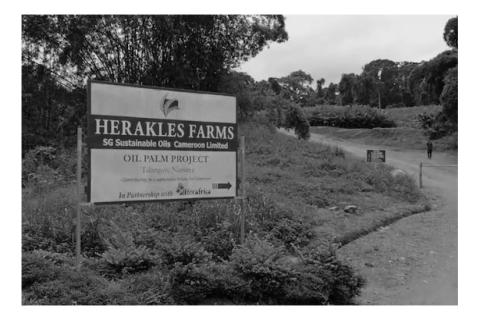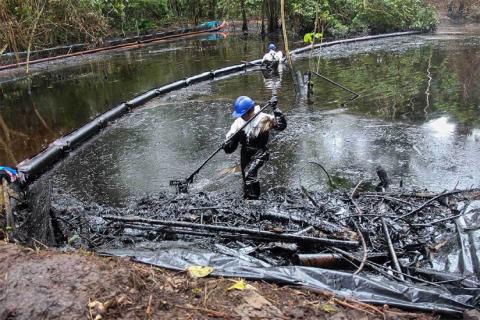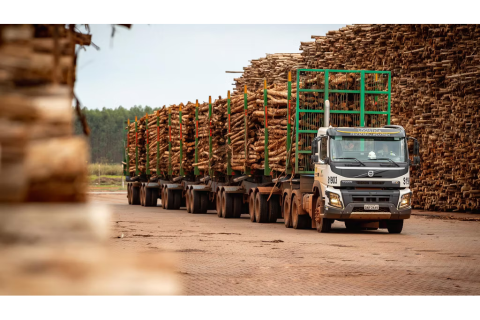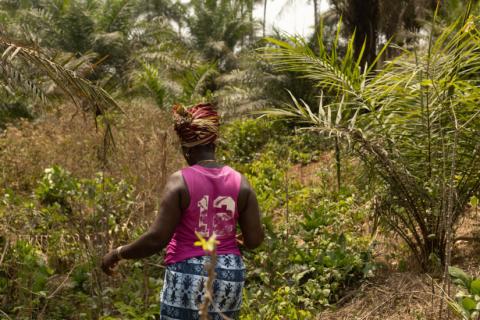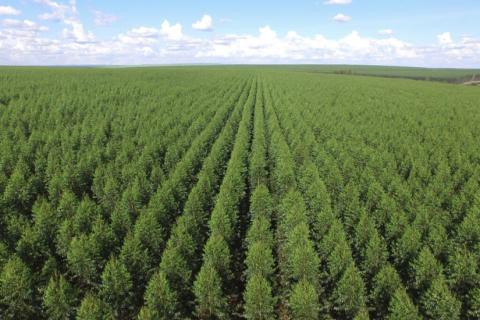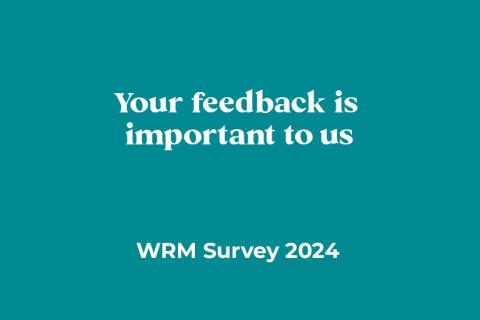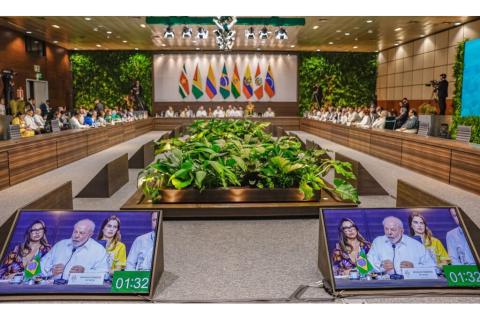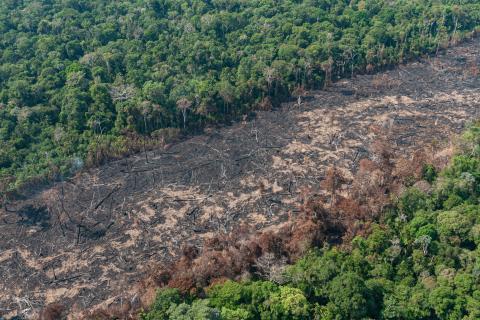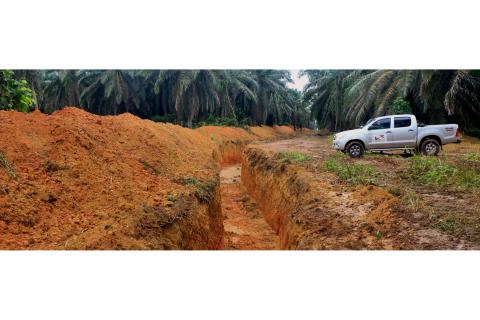The company is in the process of renewing part of its oil palm plantations in Edéa. At the end of last year, communities started to mobilize against this process. The community resistance has led the sub-prefect to request Socapalm to stop its activities. This is a first victory of the community but the struggle will continue until SOCAPALM returns the lands to the communities!
Bulletin articles
The Argentine province of Corrientes has the largest area of tree plantations in the country. 80% of the timber from these plantations goes to sawmills, where mountains of sawdust are regularly burned, causing serious health problems for neighboring communities. The local organization, Guardians of Y'vera, conducted a community health survey to highlight the problem, demand the relocation of these mills, and denounce the impacts of the forestry model.
Several articles in the current bulletin report about community struggles against old and new forms of extractivism that threaten the territories and livelihoods of communities in Latin America, Africa and Asia. For this reason, we recommend the rereading of an interview with the WRM Advisory Committee member Nasako Besingi, from Cameroon, about the challenges communities face.
Forest conservation and tree planting initiatives to provide carbon offsets are two of the corporate sector's favourite ways to greenwash their image and keep doing business as usual. These initiatives have features that make them very attractive to investors, for example the easiness with which project arguments and calculations can be manipulated. Therefore, it is no surprise that scandals have come to light—which has affected the kinds of projects being developed.
How many tree plantations are there, and how big are they? In what regions and countries are they located? What are the differences among the various "players" who are directly involved in implementing tree plantations for the carbon market? This article presents figures and information seeking to answer these and other questions.
Behind every tree plantation developed for carbon offsets, there are external agents seeking to profit from increased control over the land. And while they all have the same colonial approach, these plantations can vary widely: they can be large-scale monocultures or schemes with smallholder farmers; they can include exotic species or native species; and some of them may even exist on paper only.
Several initiatives have done their part in promoting tree plantations for carbon offsets. Regardless of whether these initiatives are led by the corporate sector, NGOs, national governments, or oil companies, polluting corporations benefit from the diversion of attention away from the need to curb fossil fuel emissions.
We recommend rereading the publication, “The Carbon Market: Planting More Problems,” written by Larry Lohmann in 2000.
Every two years we conduct a survey within the WRM network about the content of our bulletin and other materials, including booklets, briefings, videos and podcasts. We kindly ask that you respond to this brief questionnaire.
The Amazon Summit: Extractivism and violence in the name of the “bioeconomy” and of “sustainability”
Using the argument of “sustainable development”, governments in the Amazon region continue providing incentives for extractivism. In the face of this, indigenous leader Alessandra Munduruku vents her thoughts: “What we need is the demarcation of indigenous territories. Enough talk of bioeconomy, of sustainability, when there is violence in the here and now.”
The Amazon region is one of the final frontiers of resistance to capital expansion. This is epitomized by the struggles of social activists such as Chico Mendes, as well as by the presence of most of the earth’s remaining indigenous peoples in voluntary isolation. However, different forms of ‘green’ extractivism are currently and increasingly advancing on this territory.
In the Acará Valley, Pará state, the Tembé and Turiwara indigenous peoples, and quilombola and peasant communities are fighting to take back part of the living spaces they traditionally occupied. It is not just a struggle for territory, but one to reverse a history of oppression and injustice. Today, they are denouncing structural violence and state omission.


